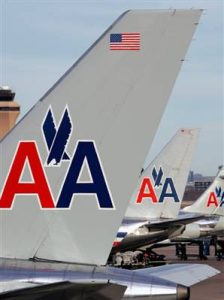I rarely write articles on leadership, talent management or employee engagement. It seems like there are enough being written already by more knowledgeable people than me. But this one is too good to pass up.
I live in Dallas, the home of two major airlines —- Southwest and American Airlines. Because they are both local, the Dallas newspaper is always quick to print any and all details of their “goings on.”
I’ve been thinking about their leadership differences recently.
Forward-thinking talent management
Southwest was the “rebel” start-up back in the 1970’s. The stewardesses wore hot pants (which would never be allowed today!) and go-go boots, and they danced and sang their way down the airplane aisles much to the delight of male passengers! Their branding was “the love airline.”
Herb Kelleher was their CEO for years and was a wild and crazy man! Libby Sartain was the Vice President of HR. The two of them were like “two peas in a pod.” Both had a great sense of humor and were very fun-loving. (Some of you may know Libby. She left Southwest for Yahoo! Now retired, she is an author and frequent speaker at HR events, including this year’s TLNT Transform conference.)
Southwest was/is very forward-thinking in terms of talent management. They created many programs in the 70’s that are still considered forward-thinking even today. They used innovative ideas to excite and motivate employees and created a very trusting, happy and proud workforce. As Herb Kelleher said, “You can buy an airplane and a terminal, but you can’t buy the spirit of the people.”
Southwest has been one of the most, if not the most, profitable airline in the U.S., and I cannot help but think it has been at least partially due to the way they have treated their employees. I could go on and on — but I think you get my drift.
An adversarial relationship with labor
 American, on the other hand, has had an adversarial relationships with its unions for a long time. There has been little trust between employees and management. American has been on shaky ground financially for 10 years and has had almost constant battles with the unions involving cost cutting measures as well as layoffs.
American, on the other hand, has had an adversarial relationships with its unions for a long time. There has been little trust between employees and management. American has been on shaky ground financially for 10 years and has had almost constant battles with the unions involving cost cutting measures as well as layoffs.
Some of you may be aware that American has recently filed for bankruptcy. They have also requested the court to allow them to terminate union contracts as part of their proposed restructuring.
US Airways is interested in acquiring them. American’s unions have met with U.S. Airways and have agreed to the proposed employment terms should US Airways acquire American. The unions have also posted a full page letter to American’s Board of Directors in the Dallas newspaper asking them to vote for US Airways’ acquisition proposal. To say there is no love lost between the unions and American management is an understatement.
What a contrast in leadership and talent management.
A leadership lesson from Braniff
Thinking about these two airlines made me think of another story about leadership. This one is on a more personal note. My father worked for an airline that was based in Dallas, too. Maybe some of you remember Braniff. It no longer exists. He told me something I will never forget when I first became a manager.
He was not a college graduate, but at Braniff, he worked his way up to superintendent, which was a management position. He managed all of the overhaul, instrument and electrical work in the maintenance department.
When the airline fell on hard times, there were layoffs. He was spared, but was “bumped back” to a mechanic position. The first day he reported to work as a mechanic, several mechanics approached him, gave him a fully equipped toolbox and told him: “You treated us fairly when you were our boss. Now we want to repay you for it. If you have any questions or need any help on the job just ask us, and we will be happy to help you.”
Well, that story made a very strong impression on me. The message? Be careful how you treat people. You don’t know what the future will bring. What goes around, comes around.
In Bible-speak: “Do unto others as you would have them do unto you.”
In HR-speak: It’s about leadership, talent management and employee engagement.
Back to American and Southwest: Southwest follows that maxim; American does not. And now American does not have its employees’ support when it needs it the most.
Lesson learned.
PS — In memory of my father whose two great wishes in life were to live in Texas and work in aviation. He accomplished both.
